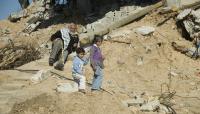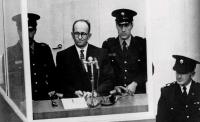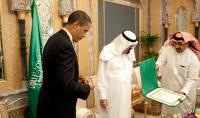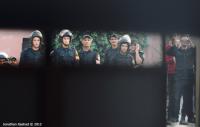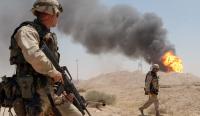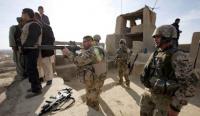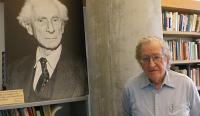Gilbert Achcar: Political Scientist and Sociologist at the "School of Oriental and African Studies", University of London, Peace Activist, Author of "The Arabs and the Holocaust" and together with Noam Chomsky "Perilous Power"
The Israeli government has called the attack on Gaza killing 170 Palastinians and 6 Israelis "Pillar of Defense". German Chancellor Angela Merkel declared that Israel has all rights to defend itself. But granting an occupier the right to retaliate against those occupied is absurd, says Gilbert Achcar. Gaza is widely seen as an "open air prison". The Netanyahu government frustrated about not getting a green light from Obama to attack Iran chose Gaza as the "scapegoat". Meanwhile the Egyptian policy toward Israel under president Morsi hasn't changed compared to Mubarak. Ceasefires do not solve the problem, says Achcar. To regain control over the region the U.S. has renewed its alliance with the fundamentalist Muslim Brothers during the 60ies.
The overwhelming majority of the European jews fleeing the Nazis would have wanted to emigrate to North America but the doors were closed. "The idea of building such a state in a country which was not a deserted country, far from it, at the expense of the local population was planting the seeds of a tragedy which has now been with us for several decades since 1947/1948", says Achcar. After the total occupation of Palastine after the Six-Day War in 1967 Israel has continually rejected any international agreement in form of "land in exchange for peace". The complete evacuation by Israel of all the territories occupied in 1967 and the respect of the right of the Palestinians to self-determination at least in the 22 per cent of their historical territory would be a minimal condition for any peace solution. It's also important to mediate in the "war of narratives" between the Zionist and Colonialist interpretation of the conflict, says Achcar.
Antisemitism and philosemitism are sharing a common basis: They are both incapable of conceiving Jews as normal people, said the renowned historian on anti-Semitism Eleonore Sterling in the 50ies. Following this reflection, Achcar talks of an ambigous philosemitism. It's the attitude by which postwar West Germany tried to white wash the yellow star and integrated into the Western system. Moreover Zionism in Europe and North America was also driven by anti-Semitism. It was the official policy of the Nazis and Hitler until 1941 to deport the Jews to Palastine. Achcar points to the fact that the only non-Nazi political organisation that remained in Germany after the Nazis took power was the Zionist movement. This amalgamation of Zionism and ani-Semitism characterizes the support for the state of Israel by Adolf Eichmann, Konrad Adenauer (at least until 1945) and Christian Zionists in the U.S. among others.
Israel and the U.S. keep threatening Iran with a military attack altough Iran doesn't have any facilities to even start building a nuclear weapon or is following up on a nuclear program according to American intelligence documents. "So, when the United States threaten Iran with war, it is like confirming the right of Israel to have a nuclear monopoly in the region. And this is the best way to avoid any peaceful solution. The United States could have a very different policy, which is to put pressure on Israel for de-nuclearisation, for an agreement, which Iran would definitely sign, as all the states of the region, for a nuclear free Middle East". The U.S. also keeps building the tension with Iran to create a climate for lucrative arms deals with the neighboring oil monarchies, says Achcar.
Almost two years after the start of the Arab Spring Achcar sums it up: This is a longterm revolutionary process. "Because the roots of all this are not just the issue of the kind of government you had, formally speaking, that is the regime. But the social-economic problem, the main manifestation of it is unemployment." This hasn't changed so far in the region. In Egypt the Morsi government continues the neoliberal economic policy of Mubarak by signing an agreement with the International Monetary Fund. In Tunesia the social and economic decisions are made in continuation with the old regime. But the people keep standing up for their rights. In Bahrein and even in Kuwait big demonstrations are still taking place while Syria is experiencing a fierce civil war. "Egypt and Tunisia themselves, the two countries where it all started, will see yet a lot of upheavals, changes, turns, mass movements, mobilisations."
